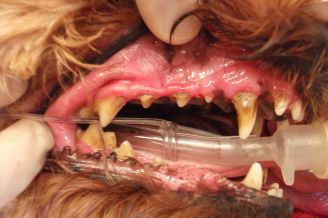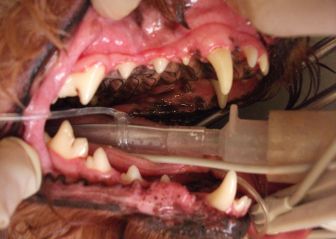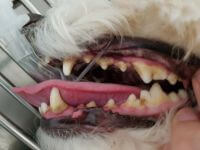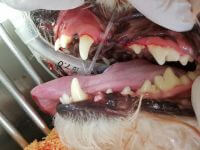Pet Care Information
Hawthorn East Vet
Noticed something not quite right? Our team of highly trained Vets and nurses are skilled in diagnosing and treating problems to ensure your pet remains healthy. We promise to be caring, empathetic and treat your pet as if they were our own. Consultations are by appointment, although emergencies will always be seen as a priority.
Here is some generic advice regarding common pet care issues.
Common Household Pet Toxicities or Poisons
Products toxic to cats and dogs are in most households and gardens. The following are some of the most common toxic foodstuffs, human medications, poisons and plants that you may have at home.
Let’s keep the home safe for everyone!
Here are the most common poisons enquired about at the Veterinary Poisons Information Service (VPIS) and our clinics (additional toxic foods can be found on the last pages):
Human Medications
We do recommend
NSAIDs (Non-steroidal anti-inflammatory drugs)
Examples include Ibuprofen (i.e.
If you suspect your dog has had access to NSAIDs or eaten it by accident, then please contact us immediately.
Paracetamol
Also known as acetaminophen and marketed commonly as Panadol for its use as a
Anticoagulant rodenticides
Both dogs and cats can be affected by products used to help control rodent infestations. Examples include Warfarin (marketed as Ratblitz) or Bradifoucam (marketed as Talon and Ratsak). Ingestion may result in bruising and uncontrolled bleeding, however, these effects may not be seen until several days later. It is important to note that not all rodenticides are anticoagulant. Attention must be made to the type an animal has ingested so appropriate treatment can be started if necessary.
Metaldehyde
This ingredient is found in many
Chocolate toxicity
Chocolate contains a substance called Theobromine.
Unlike humans, animals have difficulties breaking down this product during digestion which can lead to toxic effects on the cardiovascular and central nervous systems. When affected by an overdose of chocolate, a pet can become excited and hyperactive and can progress to tremors, convulsions and heart disturbances. Theobromine will either increase their heart rate or may cause the heart to beat irregularly. Other side effects include vomiting and diarrhoea.
Despite eating large amounts of chocolate, some pets may look as if they are unaffected.
Grapes, raisins, currants and sultanas
Ingestion of these foods can lead to kidney failure. The toxic mechanism is poorly understood and it appears that the quantity required to cause problems are variable. In some dogs,
Onions & Garlic
Onions and garlic contain a toxic ingredient thiosulphate. When onion and garlic are ingested in large quantities (single ingestion or cumulative), the thiosulphate in these foods can cause red blood cells to rupture, resulting in anaemia.
We advise avoiding these foods altogether in pets.
Lilies
Lilies are beautiful to look at and are commonly found in floral arrangements in households, gardens and at the florist. However, most cat owners and florists are unaware that cats could die of kidney failure should they eat any part (stem, leaves, petals, stamens and pollen) of these toxic species. Even a small exposure to the pollen can be potentially very dangerous, with as little as two leaves causing fatalities. Many cats will vomit after chewing or eating parts of a lily and may also drool, lose their appetite and have increased urination (followed by lack of urination in 1-2 days). Please contact your veterinarian if you suspect your cat has been exposed to this plant.
What to do if your pet is showing signs of poisoning
- Try to get in touch with a veterinarian or a poison control centre and follow their instructions
- If the product is a petroleum product, cleaning solution, strong acid or strong alkali, if the substance was ingested more than 3 hours ago, or if your pet is unconscious, not able to stand or is having trouble breathing, you must get your pet to a veterinarian as soon as possible
- If the pet vomits, save a sample of the vomitus for later inspection by the veterinarian. (consider using a ziplock bag)
Protecting your pets
There are numerous ways that every pet owner can consider when protecting their pets from the dangers around the household/garden. The following are few ways of doing this:
- Only give your pet medication that is recommended by your veterinarian and always discuss with them prior to giving any human medication
- If you are using poisons (snail bait, rat bait) in the house or if you store chemicals in the house, ensure your pet cannot access these areas
- If your pet likes to scavenge food and items from your household bin, attempt storing the bin in a difficult to reach location (behind a cupboard door, elevated from the ground) and make sure you safely dispose of medicines, chemicals and food.
NOTE – This list is not complete
- Alcoholic Beverages: Any type of alcohol can be poisonous to your pet and aside from intoxication, can cause a coma or even death.
- Apple Seeds: Can have varied effects on pets.
- Apricot Pits: Can cause respiratory difficulties such as breathing, coughing and sneezing.
- Avocados: The leaves, fruit, seeds and bark of avocados contain Persin, which can cause vomiting and
diarrhea in dogs. Birds and rodents are especially sensitive to avocadopoisoning, and can develop congestion, difficulty breathing and fluid accumulation around the heart. - Cherry Pips: Can cause respiratory difficulties such as breathing, coughing and sneezing.
- Chewing gum/Sweets containing the sweetener Xylitol: Can cause liver damage and even death.
- Chocolate: Although pets should never have any type of chocolate, milk chocolate is not nearly as dangerous for animals as semi-sweet or unsweetened bakers chocolate. Chocolate poisoning can cause irregular heart rate and rhythm, restlessness, hyperactivity,
diarrhea , vomiting, panting, muscle tremors, abdominal pain, bloody urine, increased body temperature, seizures, coma and possibly even death. - Coffee: Can result in increased breathing and heart rate, restlessness and affects the central nervous system.
- Garlic: Can cause anaemias (low red blood cells)
- Grapes: Large amounts of grapes can be poisonous to pets and can cause vomiting,
diarrhea , lethargy, abdominal pain, lack of appetite and kidney damage. - Hops: May cause panting, elevated temperature, increased heart rate, seizures and possibly death.
- Macadamia Nuts: Can cause vomiting, lethargy, hyperthermia, abdominal pain, stiff joints, lameness and tremors.
- Mouldy Foods: Can have varied effects on pets including vomiting and
diarrhea . - Mushrooms: Different types of mushrooms can have varied effects on pets such as, depression,
diarrhea , nausea and vomiting, abdominal pain, tearing, hallucinations, defecation, liver failure, seizures, drooling, urination, kidney failure, heart damage, hyperactivity and in some cases, death. - Mustard Seeds: Can have varied effects on pets.
- Onions and Onion Powder: Can cause anaemia and gastrointestinal problems such as vomiting and diarrhoea.
- Peach Pips: Can cause respiratory difficulties such as breathing, coughing and sneezing.
- Potato Leaves and Stems: Can cause problems with the digestive, nervous and urinary systems.
- Raisins: Large amounts of raisins can be poisonous to pets and can cause vomiting,
diarrhea , lethargy, abdominal pain, lack of appetite and kidney damage. - Rhubarb Leaves: Can cause problems with the digestive, nervous and urinary systems.
- Salt: In large quantities can cause electrolyte imbalances.
- Tea: Can have varied effects in pets.
- Tomato Leaves and Stems: Can cause problems with the digestive, nervous and urinary systems.
- Walnuts: Can cause gastrointestinal problems such as vomiting and
diarrhea , as well as respiratory issues such as sneezing, breathing and coughing. - Yeast Dough Yeast dough can rise and cause gas to accumulate in your pet’s digestive system. This can be painful and can cause the stomach or intestines to rupture. Because the risk diminishes after the dough is cooked and the yeast has fully risen, pets can have small bits of bread as treats. However, these treats should not constitute more than 5 percent to 10 percent of your pet’s daily caloric intake.
References:
https://vpisglobal.com/common-poisons/
Veterinary Information Network
Image References:
http://www.topnews.in/files/Medications.jpg
https://static.chemistwarehouse.com.au/ams/media/productimages/6973/original.jpg
– http://www.rsc.org/learn-chemistry/resources/chemistry-in-your-cupboard/images/nurofen/figure14.jpg
– http://kingofwallpapers.com/chocolate.html
– http://cdn1.medicalnewstoday.com/content/images/articles/271156-grapes.jpg
– http://www.st-ives-vet.co.uk/images/slugbait.jpg
– http://www.blueskyvet.com/wp-content/uploads/2015/02/Stargazer-lily.jpg
– https://s-media-cache-ak0.pinimg.com/236x/d6/9a/a6/d69aa606683af391f30222c09f39e74d.jpg
Vaccinations
Regular physical examinations (annually when younger and 6 monthly when over 7 years fo age) are crucial to ensure your pet stays in optimal health. At these exams, a full physical examination is given, and preventative care against diseases and parasites, as well as any problems discussed. We are lucky there are vaccinations available to prevent against many infectious and potentially fatal diseases. It is important these are kept up to date to maintain your pets protection.
We stay up to date with the latest vaccines available and latest vaccine recommendations from the Australian Veterinary Association.
What Vaccinations does my dog need?
We recommend all dogs maintain a current C5 vaccination. For puppies, we use the latest vaccines which enable our final puppy vaccination to be given at 12 weeks of age. This means you can get your puppy out and about to explore the world and socialise with other dogs much earlier.
In adult dogs, we routinely give an extended duration vaccine for Parvo virus, Distemper and Infectious hepatitis. Canine cough (Parainfluenza and Bordetella vaccines) must be given annually to maintain protection.
What about my cat?
Cats should be vaccinated with an F3 vaccine, covering herpes virus, calici virus and feline enteritis. This is usually given as a course of three vaccines at 6-8 weeks, 12 weeks and 16 weeks of age. Adult cats require an annual vaccination.
It is a condition of all catteries that cats are up to date with vaccines. If your pet is overdue, they will require two vaccines three weeks apart to get back up to date before they can be boarded.
Does your cat go outside?
FIV (Feline iimmunodeficiency virus) is commonly known as ‘Cat AIDS’. Unfortunately this is a common disease among stray cats and is spread mainly by fighting and biting. FIV can cause your pet to be more susceptible to dental, respiratory and skin problems and well as cancers. The good news is that FIV is preventable!.
If your cat has unsupervised access outside we strongly recommend your cat is vaccinated.
Parasite Control
Fleas, intestinal worms, heartworm, mosquitoes….. There are lots of little critters out there determined to make our pet’s lives miserable. We recommmend all pets be on a year round preventative parasite control program to maintain optimal health. We stock a wide range of products and our team can discuss the best products to suit your pet and circumstance. (eg. the once a year heartworm injection for dogs is great for those of us with forgetful memories!)
Microchipping
The best way to get re-united with your pet should they become lost is via a microchip which is implanted beneath the skin near the shoulders. This is a quick one off procedure which can be done with your pet in a consultation. It is also a legal requirement by the local council that all new cat and dog registrations are microchipped and registered with the council by 12 weeks of age.
Senior Pet Health Programs
It happens to us all, pets included. Each birthday we turn another year older. Pets are considered to be ‘seniors’ over 7-8 years of age, and require careful monitoring to detect and treat issues before they become bigger problems. Our program for senior pets involves health and urine examinations every 6 months, and an annual blood screen to check for underlying conditions. Remember, animals are designed to mask illness and so by the time we detect something is amiss at home, things may be quite advanced. If problems are detected early, we can often act quickly to diagnose and treat problems and ensure your pet maintains the best pain free quality of life for the longest time possible.
Dentistry
Dental disease is one of the most common conditions we see in pets and over 70% of cats and dogs show signs of dental disease by three years. This causes pain and infection and if left untreated can also contribute to other problems within the body such as heart or kidney disease.
The stages of Dental disease are

1) Food and bacteria form plaque on the teeth
2) Plaque mixes with saliva to harden and form tartar.
3) The tartar causes gingivitis (inflammation and infection of the gum), which causes the gums to recede from the teeth
4) The bone surrounding the tooth roots becomes affected (periodontal disease). When this occurs it is often necessary to extract diseased teeth.
Signs of dental disease can include
- Bad Breath
- Discoloured teeth
- Reluctance to eat or slow eating
- Weight loss
- Sometimes there are no signs!
Talk to one of our team about your pets dental health. There are many home care strategies to help maintain optimal dental health, and in some cases your pet may require a dental procedure.

This usually involves a general anaesthetic to allow us to ultrasonically scale and polish the teeth and beneath the gum line (where the real disease lies!).
We also are able to perform Dental xrays to assess the tooth roots and jaw if necessary.
Home Dental Care
Dental disease is a very common condition in cats and dogs. Improved dental health and care has been shown to contribute to the longer lifespan of pet cats and dogs.
The stages of Dental disease
1) Food and bacteria form plaque on the teeth
2) Plaque mixes with saliva to harden and form tartar.
3) The tartar causes gingivitis (inflammation and infection of the gum), which causes the gums to recede from the teeth
4) The bone surrounding the tooth roots becomes affected (periodontal disease). When this occurs it is often necessary to extract diseased teeth.
Dental work in the clinic
Dental procedures in clinic including ultrasonic scaling and polishing under a general anaesthetic are often the first step to help manage dental disease.
We will often perform dental radiographs (Xrays) to identify potentially painful disease that cannot be seen below the gum line.


Before (grade 1-2 tartar) After Dental scale and polish
Dental home care is very important
- Brushing – is the gold standard according to veterinary dentists. Brushing the teeth daily (ultimately with a pet toothpaste and brush (finger or brush)) will help remove food and plaque before it can progress to tartar. If this isn’t done frequently then it won’t be helping your furry friend very much (it takes 2-3 days for tartar to form)
- Dental diets (Hills T/D or Royal Canin Dental). These diets are designed so that the biscuit does not shatter, and the pet must chew the biscuit, mechanically cleaning the teeth. They also have additives that bind and reduce the formation of tartar.
- Dental chews/toys – Greenies, Rawhide chews, Pigs Ears and chew toys can all encourage chewing
- ‘Healthy Mouth’ – Water additive that helps prevent the chemical reaction that produces tartar It works by interfering with the formation of the bacterial biofilm within the mouth that acts as the precursor to plaque. Simply dilute HealthyMouth into your pets bowl, each time you change the water. More information can be found at: https://www.healthymouth.com/
- Oral gels (eg Maxiguard) – Can be applied regularly to gums to slow tartar formation
- Plaqueoff – a powdered seaweed formula added daily to your pet’s food helps eliminate bad breath, plaque and tartar associated with dental disease.
- Raw bones – Chewing bones can be highly effective in maintaining dental health, as well as providing a source of environmental enrichment. Bone chewing carries potential risks of fractured teeth and potentially gastrointestinal obstruction, and we always recommend supervision initially to ensure your pet is approaching bones appropriately. Bone feeding is best used 2 – 3 times weekly. We do not recommend feeding large beef shank or long bones as these are often very hard and highly fatty. For large dogs chicken frames are excellent, while for small to medium dogs, lamb flaps (the rib bones) and chicken necks are ideal. For cats, raw chicken wings or chicken necks 1-2 x weekly can be useful. May be beneficial for some animals to prevent tartar formation.
Regular dental check ups and in some cases regular dental scaling and polishing are important to maintain oral care. If you are concerned about your pet’s dental health, please discuss this with one of our team.
Dental disease is a very common condition in cats and dogs. Improved dental health and care has been shown to contribute to the longer lifespan of pet cats and dogs.
The stages of Dental disease
1) Food and bacteria form plaque on the teeth
2) Plaque mixes with saliva to harden and form tartar.
3) The tartar causes gingivitis (inflammation and infection of the gum), which causes the gums to recede from the teeth
4) The bone surrounding the tooth roots becomes affected (periodontal disease). When this occurs it is often necessary to extract diseased teeth.
Dental work in the clinic
Dental procedures in clinic including ultrasonic scaling and polishing under a general anaesthetic are often the first step to help manage dental disease.
Dental home care is very important
- Brushing – is the gold standard according to veterinary dentists. Brushing the teeth daily (ultimately with a pet toothpaste and brush (finger or brush)) will help remove food and plaque before it can progress to tartar. If this isn’t done frequently then it won’t be helping your furry friend very much (it takes 2-3 days for tartar to form)
- Dental diets (Hills T/D or Royal Canin Dental). These diets are designed so that the biscuit does not shatter, and the pet must chew the biscuit, mechanically cleaning the teeth. They also have additives that bind and reduce the formation of tartar.
- Dental chews/toys – Greenies, Rawhide chews, Pigs Ears and chew toys can all encourage chewing
- ‘Healthy Mouth’ – Water additive that helps prevent the chemical reaction that produces tartar It works by interfering with the formation of the bacterial biofilm within the mouth that acts as the precursor to plaque. Simply dilute HealthyMouth into your pets bowl, each time you change the water. More information can be found at: https://www.healthymouth.com/
- Oral gels (eg Maxiguard) – Can be applied regularly to gums to slow tartar formation
- Plaqueoff – a powdered seaweed formula added daily to your pet’s food helps eliminate bad breath, plaque and tartar associated with dental disease.
- Raw bones – Chewing bones can be highly effective in maintaining dental health, as well as providing a source of environmental enrichment. Bone chewing carries potential risks of fractured teeth and potentially gastrointestinal obstruction, and we always recommend supervision initially to ensure your pet is approaching bones appropriately. Bone feeding is best used 2 – 3 times weekly. We do not recommend feeding large beef shank or long bones as these are often very hard and highly fatty. For large dogs chicken frames are excellent, while for small to medium dogs, lamb flaps (the rib bones) and chicken necks are ideal. For cats, raw chicken wings or chicken necks 1-2 x weekly can be useful. May be beneficial for some animals to prevent tartar formation.
Regular dental check ups and in some cases regular dental scaling and polishing are important to maintain oral care. If you are concerned about your pet’s dental health, please discuss this with one of our team.
Contact Us
Hawthorn East Vet
Our team of professionals are here to help make pet care easy. If you have any questions or concerns about your pet's health, don’t hesitate to get in touch. We love talking about animals and we’re more than happy to help! If you would like to make an appointment you can book online or give us a call to arrange a suitable time.
Call Our Team
(03) 9882 0007
Opening Hours
Monday - Friday: 8am - 7pm
Saturday: 9am - 3pm
Sunday: Closed
Address
1 Victoria Road, Hawthorn East, VIC 3123
